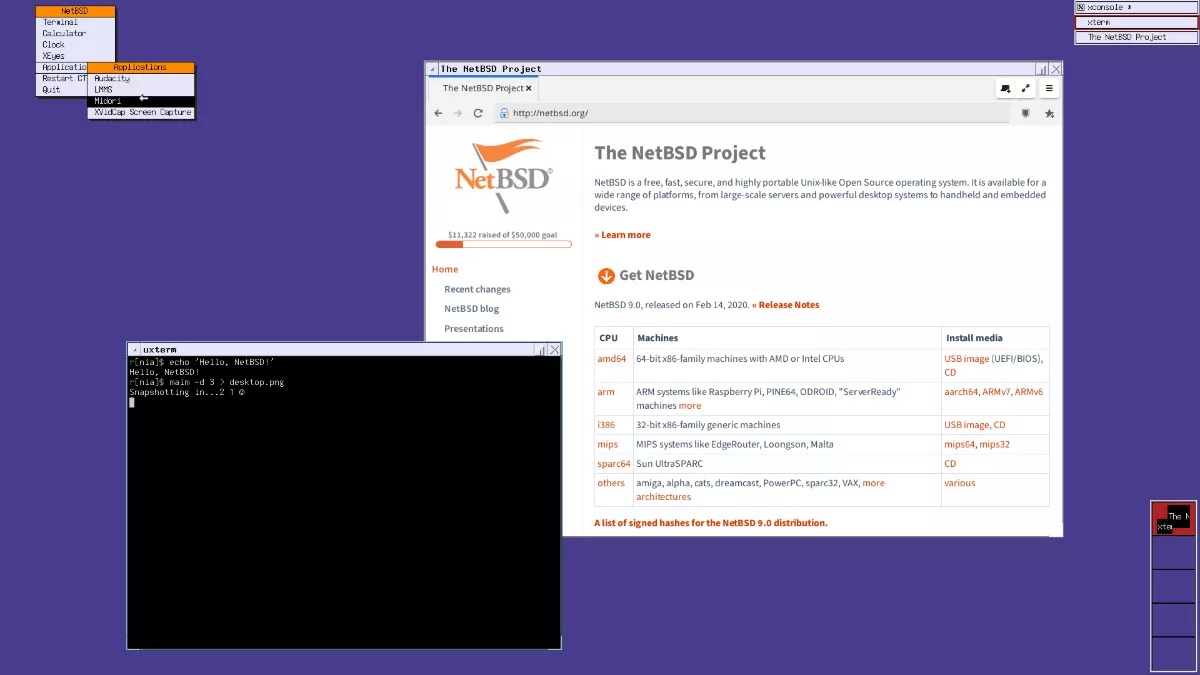NetBSD Switched Its Default Window Manager From TWM to CTWM

NetBSD is one of the oldest BSD (Berkeley Software Distribution)-based Unix-like free and open-source operating systems. For more than two decades, it is still actively developed for several platforms such as servers, desktops, and embedded systems.
From the beginning, NetBSD featured the X11 windowing system with the “classic” default window manager of TWM (Tab Window Manager). But now, the team has switched its default window manager from TWM to CTWM (Claude’s Tab Window Manager) in NetBSD-current.
If you don’t know, NetBSD-current is a nightly distribution of the latest NetBSD development branch, which includes the latest features along with experimental changes and bugs.
The new transformation of the default window manager in the development branch arrived after NetBSD developer Nia Alarie personally tried and tested NetBSD with ctwm for a week.
Well, ctwm was already included in the previous NetBSD releases, but not as a default window manager.
Now, as ctwm (a fork of twm) is available by default, NetBSD supports several features such as an auto-generated application menu, various keyboard shortcuts including volume controls, and better screen resolutions.
As Nia Alarie says, the primary advantage that ctwm brings is lightweight, highly configurable, NetBSD-compatible license, and support for virtual desktops, very slow and fast hardware with one config.
NetBSD can even have support for HiDPI once some larger bitmap fonts are being imported. However, if you’re also wanting to know when NetBSD will switch its X11 windowing system to the modern Wayland system, there’s still a long way to go.
Here, in another blog post, Nia Alarie has explained the reasons and difficulties faced after porting the first working Wayland compositor to NetBSD.






